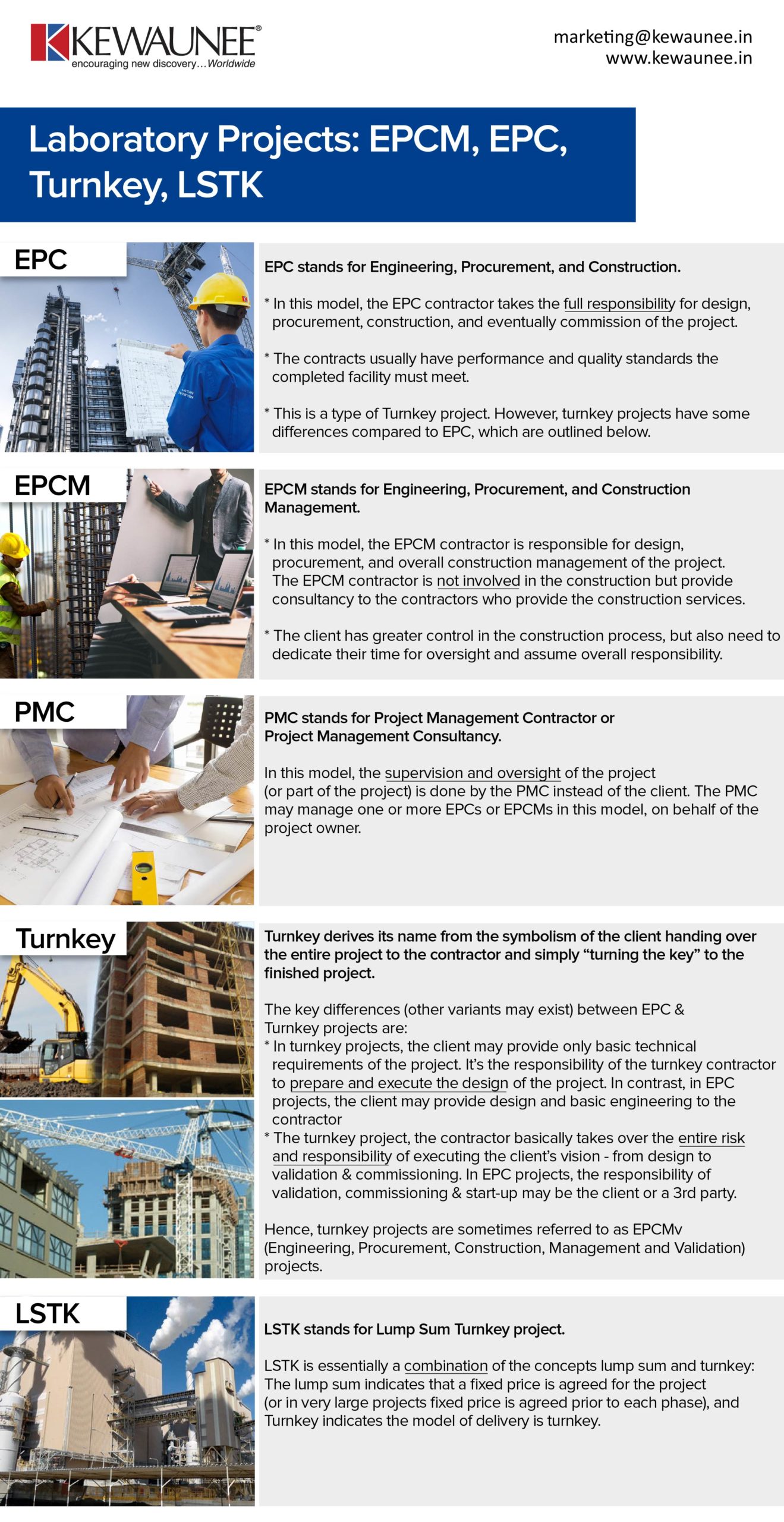Laboratory Projects: EPCM, EPC, Turnkey, LSTK
Thinking of a new laboratory construction or renovation of an existing laboratory? You may have come across various construction management options and acronyms.
Terms like EPC, EPCM, TK, LSTK etc may sound alien. With no common or standardised definition and subtle differences, these options available to you as a buyer may be confusing.
In thig blog, let’s clarify some of the terminologies and see how it relates to a laboratory construction project.
| Terminology | Definition |
|---|---|
| EPC | EPC stands for Engineering, Procurement, and Construction.
In this model, the EPC contractor takes the full responsibility for design, procurement, construction, and eventually commission of the project. The contracts usually have performance and quality standards the completed facility must meet. This is a type of Turnkey project. However, turnkey projects have some differences compared to EPC, which are outlined below. |
| EPCM | EPCM stands for Engineering, Procurement, and Construction Management.
In this model, the EPCM contractor is responsible for design, procurement, and overall construction management of the project. The EPCM contractor is not involved in the construction but provide consultancy to the contractors who provide the construction services. The client has greater control in the construction process, but also need to dedicate their time for oversight and assume overall responsibility. |
| PMC | PMC stands for Project Management Contractor or Project Management Consultancy.
In this model, the supervision and oversight of the project (or part of the project) is done by the PMC instead of the client. The PMC may manage one or more EPCs or EPCMs in this model, on behalf of the project owner. |
| Turnkey | Turnkey derives its name from the symbolism of the client handing over the entire project to the contractor and simply “turning the key” to the finished project.
The key differences (other variants may exist) between EPC and Turnkey projects are:
Hence, turnkey projects are sometimes referred to as EPCMv (Engineering, Procurement, Construction, Management and Validation) projects. |
| LSTK | LSTK stands for Lump Sum Turnkey project.
LSTK is essentially a combination of the concepts lump sum and turnkey:
|
Laboratory renovation or construction projects can throw many challenges. Thousands of variables affect design considerations, construction materials, and MEP & HVAC planning. Environmental & safety clearances, project management, testing & commissioning demands careful orchestration.
Each project is unique and there is no thumb-rule rule for choosing the best approach. Irrespective of the model you chose, what ultimately matters are that your lab project is delivered on-time, within budget, and meets all the design, safety, and quality norms.
Comments are closed.











